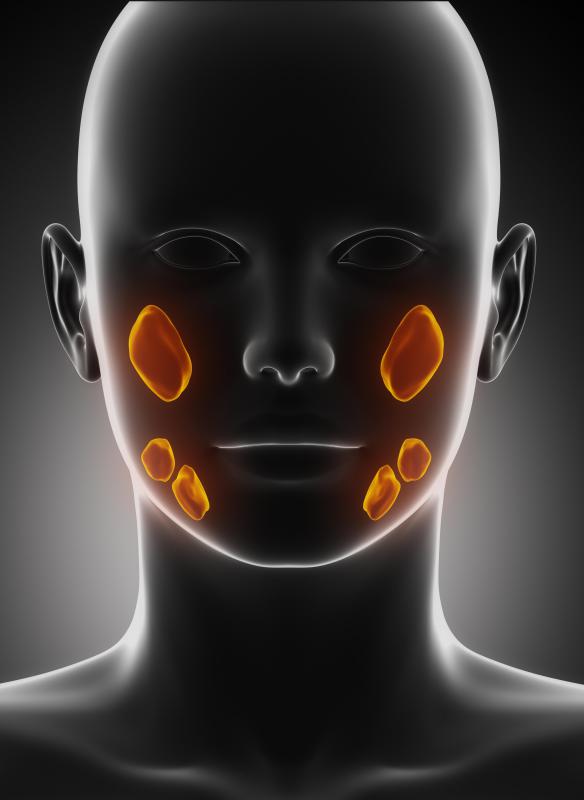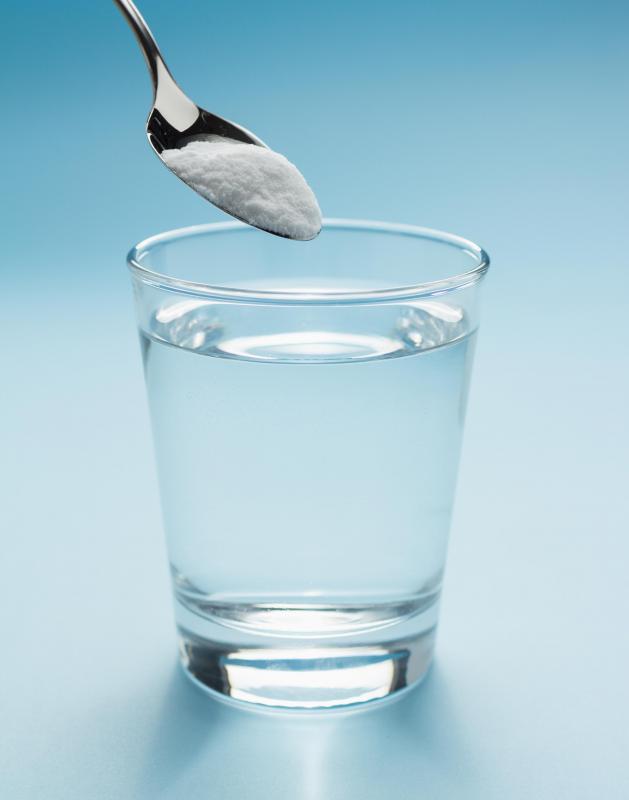At WiseGEEK, we're committed to delivering accurate, trustworthy information. Our expert-authored content is rigorously fact-checked and sourced from credible authorities. Discover how we uphold the highest standards in providing you with reliable knowledge.
What is the Treatment for Enlarged Salivary Glands?
Three pairs of major salivary glands — the parotid glands, the submandibular glands, and the sublingual glands — are found inside the mouth. Apart from these, there are hundreds of other, much smaller salivary glands in various locations in the mouth and throat region. Their function is to produce saliva and drain it to the mouth through ducts. These glands sometimes become infected and enlarged, causing pain and discomfort. But enlarged salivary glands don’t usually last long; they also often return to normal even without medical treatment.
The common causes of larger than normal salivary glands are viruses and bacteria. In viral infections like mumps, no treatments are typically necessary because the infection will go away on its own after a few days. The person should simply be kept as comfortable as possible. If there are additional symptoms like fever or pain, antipyretics and analgesics may be used, but there are no treatments available for the viral salivary infection itself.

In cases of bacterial infection, antibiotics may be used to treat the enlarged salivary glands. But then again, in most cases, the infection will clear up eventually even without medical intervention. Good oral hygiene and symptoms management may be all that’s needed as treatment. Good hygiene is also one way to prevent the salivary gland infection from happening in the first place.

The bacterial infection, also called sialadenitis, may be caused by obstructions such as stones in the salivary ducts. It can be painful, or it may cause no symptoms at all. The stones can pass out of the ducts on their own, or, if they are large enough, they may need to be removed.
Some measures can be taken to make the enlarged salivary glands return to normal faster. Warm salt water rinses are recommended. Mix half a teaspoon of salt in one cup of water and gargle with it. Also drink plenty of water to increase the flow of saliva; a person who is dehydrated is more prone to have enlarged salivary glands. Finally, use warm compress against the swollen area to soothe it and speed up recovery.

Enlarged salivary glands are pretty common, especially among children. To reduce their incidence, children must be vaccinated against mumps and influenza. Good oral hygiene and drinking enough water every day are also helpful practices to prevent swollen salivary glands. Adults who smoke must quit the habit, as it increases their susceptibility to both sialadenitis and parotitis, which is an infection of the parotid glands.
AS FEATURED ON:
AS FEATURED ON:
















Discussion Comments
Sjogren's syndrome can also cause enlarged salivary glands. It's an auto-immune disorder which means that the immune system is mistakenly attacking the salivary glands and causing it to be inflamed and swollen.
My cousin has this disorder and is taking immunosuppressant drugs for it.
@ZipLine-- That depends on what's causing the salivary glands to be enlarged. And yes, as far as I know, enlarged salivary glands and swollen glands are basically the same.
People don't realize this, but there are many different reasons for why salivary glands can be enlarged. Even when the cause is infection, there can be numerous different sources for the infection. It can be bacterial or viral or it could be due to blockage of the gland by calcium deposits.
So first, your doctor must determine the cause. If it is caused by a bacterial infection, antibiotics can be used to treat it. If it's something else, the treatment will be different. Get well soon!
By the way, are enlarged and swollen salivary glands different names for the same thing?
Post your comments